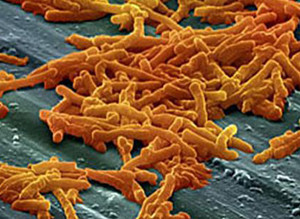What is BPA?
Bisphenol A, referred to as BPA, is a chemical that is commonly founds in plastic objects since the 1960s. It is also found in metal food products such as food cans, and is thought to bleed into the food or liquid the container is holding. BPA is thought to damage the brain and harm to pregnant women’s fetuses, as well as infants and children.
Who Made the Discovery?
David Feldman, a medical professor at Stanford University discovered that BPA might be a cause of medical problems. While Feldman and his team were growing yeast in a plastic petri dish, they discovered estrogen molecules growing as well
After looking into it further, they discovered it wasn’t the yeast creating these molecules, but rather it was oozing out from the plastic. Through this discovery they realized that BPA could potentially be harming people eating out of plastics or metals containing BPA.
After contacting one of the companies who produces BPA containing plastics, it turned out that the company had already looked into it, and deemed the product safe after using their own methods of testing the plastics.
Banned?
The part of the population that was potentially being hurt the most by this estrogen producing plastic, is considered to be the most dependent – infants. “A 2008 report by the U.S. National Toxicology Program (NTP) found “some concern for effects on the brain, behavior, and prostate gland in fetuses, infants, and children at current human exposures to bisphenol A,” with that exposure coming from PC baby bottles and infant cups,” explains one article.
When baby bottles were found to excrete BPA into infant’s milk after being microwaved, Europe and Turkey banned BPA in their plastic and metal food containers, as well as Canada and Denmark.
While the US still allows for BPA to be put in all types of plastics and metals, 11 US states have banned it from being in any type of children’s objects.
The FDA
The FDA has claimed that BPA is relatively safe, if in moderately low levels. Due to contestant pushing, the FDA is currently still testing the effects BPA has on health.
It does however, claim that it “supports the industry’s actions to stop producing BPA-containing baby bottles and infant feeding cups for the U.S. market, along with facilitating the development of alternatives to BPA for the linings of infant formula cans.”
How to Avoid BPA
-Some steps you can take to avoid BPA:
-Use more fresh food to avoid using canned foods
– Find products that do not contain BPA
– Do NOT heat plastic that may contain BPA

This symbol means that there is no BPA in whatever container you are buying.








